Compared to last week, Western Canadian feeder cattle markets traded $2 to $3 on either side of unchanged. Most auction barns held feature sales over the past week and steady demand was noted across the prairies. Calves appeared to gain momentum late in the week with favorable weather enhancing buying interest; however, yearlings were quite […] Read more
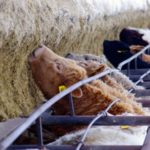
Klassen: Feeder cattle market stabilizes
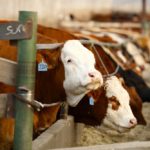
Klassen: Feeder market experiences bouncing behaviour
Compared to last week, western Canadian yearling markets traded $2-$4 higher on average; calves traded $2 to as much as $6 higher. The feeder market has recovered after a softer tone earlier in October. Favourable weather in southern Alberta over the past week caused Lethbridge-area feedlots to step forward more aggressively, especially in the lighter […] Read more
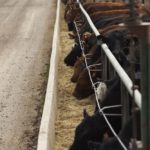
Klassen: Limited harvest progress weighs on feeder cattle
Compared to last week, western Canadian feeder cattle markets were down $2 to as much as $8 in some cases. A fortuitous bounce in the barley market resulted in a softer tone for replacement cattle. It appears that the Canadian barley crop will be smaller than earlier anticipated and some of the crop will likely […] Read more
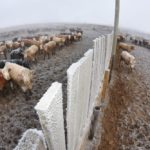
Klassen: Adverse weather tempers feeder market
Compared to last week, western Canadian feeder cattle markets traded $3-$5 lower. Excessive snow in Alberta and ongoing rains across Manitoba and Saskatchewan set a negative tone. The market appeared to incorporate a risk discount, although many auction barns had limited numbers on offer. Buyers once again focused on local cattle and avoided transportation over […] Read more
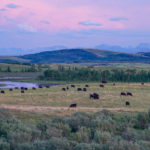
Canadian cattle herd numbers continue their long decline
Alberta’s beef herd is down nearly a quarter from its peak, but slaughter numbers are actually up
Reading Time: 3 minutes The Canadian beef cattle herd has shrunk again and is now down nearly 30 per cent from the peak in 2005. As of July 1, there were 10.36 million head on beef operations, far below the 14.74 million head that were around 14 years ago, according to Statistics Canada’s latest survey. “I don’t think anybody […] Read more

USDA to probe beef market after Tyson plant fire
Chicago | Reuters — U.S. Agriculture Secretary Sonny Perdue ordered an investigation into widening prices between cattle and beef on Wednesday after a recent fire at a Tyson Foods slaughterhouse in Holcomb, Kansas, shut the plant. Cattle prices have tanked because the fire temporarily eliminated a key buyer of livestock. Producers have worried that meat […] Read more

Klassen: Feeder cattle falter under fed cattle uncertainty
Compared to last week, western Canadian yearling prices were down $2-$4 on average. The feeder cattle market was hard to define due to limited volumes; however, prices were down $2 to as much as $6 in some cases. The Aug. 9 fire at a Tyson packing plant near Holcomb, Kansas set a negative tone for […] Read more
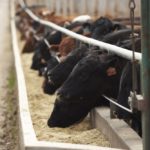
Klassen: Feeder prices ratchet higher
Compared to last week, western Canadian yearling markets traded $3-$5 higher on average; however, there were a few feature sales quoted $8 to as much as $10 above week-ago levels. Finishing feedlots were fairly aggressive on backgrounded cattle, which was the main source of yearlings last week. Early grassers are starting to come on the […] Read more
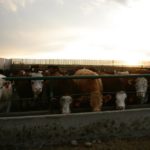
Klassen: Feeder market softens on limited volumes
Compared to last week, western Canadian feeder cattle prices were steady to $3 lower on average. Many auction barns were on holidays last week. Auctions that did hold sales had limited numbers on offer. The feeder market remains under pressure due to negative feeding margins, firm feed grain values and weakness in deferred live cattle […] Read more
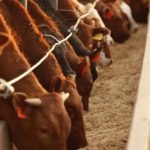
Klassen: Feeder market enters summer doldrums
Compared to last week, western Canadian feeder cattle markets traded steady to $5 lower on average. Small volumes were available last week, which distorted the price structure. Many feedlot hands will rotate holidays through July; therefore, feedlot operators don’t want to bring in fresh replacements with a skeleton staff. Recent rains across Saskatchewan and Alberta […] Read more

